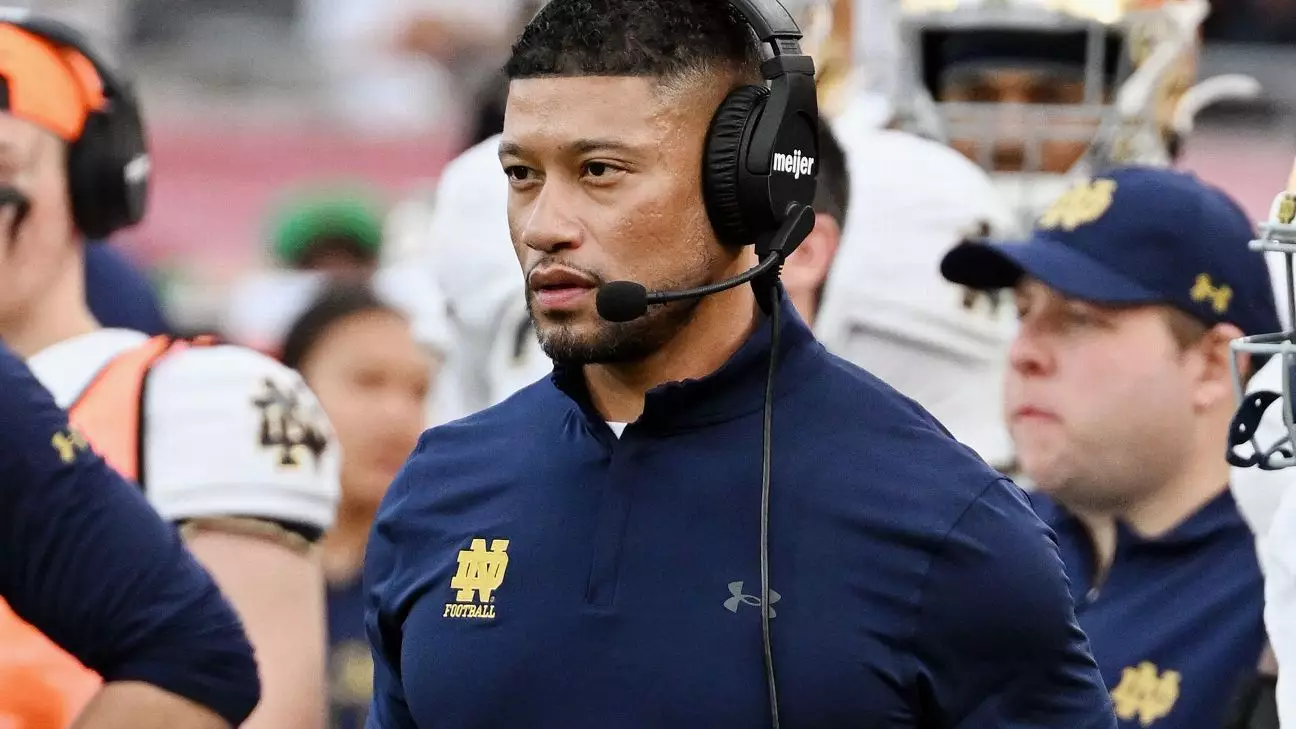The college football landscape has seen significant shifts over recent decades, and one of the most pivotal moments may soon unfold at the Capital One Orange Bowl. As Notre Dame’s Marcus Freeman prepares to clash with Penn State’s James Franklin in a College Football Playoff Semifinal, both coaches stand on the cusp of making history. The stakes are incredibly high, as the winner will become the first Black head coach to guide a team into the national championship game. This scenario reflects not only personal ambitions but also the broader conversation about representation and opportunity within college football coaching.
During their respective press conferences, both Freeman and Franklin expressed profound reflections on the moment’s significance. Franklin drew parallels between this opportunity and the landmark event of Super Bowl XLI in 2007 when Tony Dungy and Lovie Smith made history as the first Black head coaches in the Super Bowl. He recalled his experience as the offensive coordinator at Kansas State at that time and how it felt monumental to witness their achievements. Franklin explained how pivotal it was for aspiring coaches to see role models in such high-profile positions, giving them hope for their own futures in this competitive field.
As Franklin pointed out, while the presence of Black head coaches in major college football has grown—rising from six to 16 in the FBS—it remains a work in progress. Critics might argue that the increase is marginal, yet Franklin emphasizes that every opportunity counts. Qualifying the growth in representation in college football doesn’t just reflect on statistics; it offers a fresh perspective on diversity in leadership roles. Franklin’s stance captures the essence of the struggle for equality within sports and the ongoing quest for more inclusive opportunities for coaches from diverse backgrounds.
Freeman, the first-year head coach for the Fighting Irish, brings his own unique background to the forefront of this monumental encounter. With a mixed heritage as a Black and half-Korean individual, he takes pride in representing both facets of his identity. Freeman highlighted this dual aspect, emphasizing the importance of inspiration and representation for young individuals who might see their own stories reflected in his journey. His approach is focused not merely on personal accolades but rather on the concept of team glory, illustrating a profound commitment to collective success as opposed to individual fame.
Freeman understands the weight of his role as a leader. Acknowledging the significance of his visibility, he voiced the responsibility that comes with it. “Don’t put a ceiling on what you can be and what you can do,” he encourages young athletes and coaches alike, signaling a proactive approach to nurturing talent and ambition within his program. His stance on mentorship underscores the notion that aspiring coaches must have not just visible role models but also those willing to take actionable steps to uplift others.
The implications of their meeting extend far beyond the field, hinting at broader societal narratives. Both coaches recognize that their success could serve as a catalyst for change, inspiring a new generation of coaches who see pathways to success that may have previously felt out of reach. The dialogue surrounding representation in coaching positions can no longer remain theoretical; it necessitates tangible outcomes, and Freeman and Franklin appear poised to lead that charge.
Franklin expressed his gratitude for the opportunity to compete against Freeman, noting the honor it carries not just for their respective programs but also for the players under their guidance. This mutual respect affirms the fresh direction college football is taking, especially in contexts where diversity and representation are increasingly gaining recognition.
As they prepare to make history on the national stage, Freeman and Franklin embody not only the spirit of competitive sportsmanship but also a broader narrative that celebrates diversity, resilience, and the unwavering pursuit of excellence. The outcome of this match will resonate far beyond the final whistle, carving a path for future generations of coaches—proof that the game is about much more than football; it is about legacy, opportunity, and inclusion.

Leave a Reply